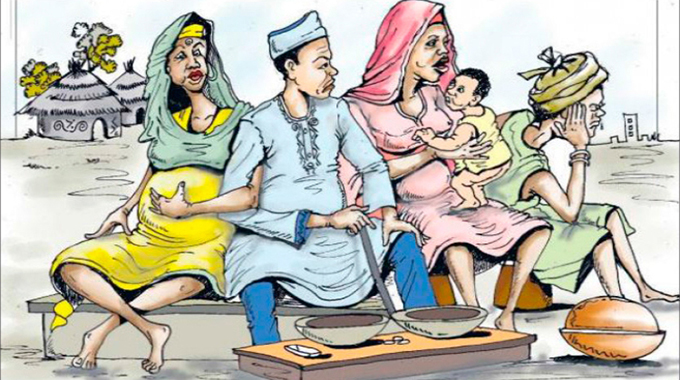Those were, without doubt, the days of our lives
Isdore Guvamombe Reflections
Back in the village, in the land of milk, honey and dust or Guruve, it is known that although the hare is known for its proclivity for tricks, it has never mastered the art of climbing up a tree.
From our school days, we have employed many tricks to progress into life, but we have never mastered the art to tell our future, it is only now that we are employed that we can look back and say, “Well, this is what I have become!”
Avid followers of this column will remember that this villager has now gone for three weeks recounting memories of what used to keep us going and entertained as students at Waddilove High School.
Dear reader, you will also remember that we ardently called it Wadidza and that we were just but one big, happy family.
At high school many things happened, but most of the students, this villager included, did not know they were carving a future for themselves.
Today when we meet in our various forms we now understand what we were destined for. We now live lives carved from those experiences at school.
That crop of students is now trudging in the length and breadth of the world providing expert or cheap labour, leadership or siring the next generation.
School those days meant learning and there were pupils who had come to school merely because they had a chance to do so but there are others, who came to school and really wanted to learn.
It was a mixed bag.
Logically, this villager cannot sign off and put a lid to the feverish memories of Wadidza without mentioning how some boys would go to the school fowl run and deliberately step on broilers’ necks suffocating them to death and, as you know, broilers being docile by nature, would die quietly without a fight. The boys would make off with them to the bush where they would later roast them and eat.
Sometimes they would just kick the birds to death and report the deaths to the teacher-in-charge before being tasked with disposing of them, which created the opportunity for the boys to safely stash the birds in places they would later remember. This villager also gathered that at times there were nasty verbal or even physical fights at the girls’ hostels over boys.
Girls would discuss boys and if a boy proposed love to one, the whole dormitory or a group would discuss the proposal and make a decision whether the targeted girl would accept or turn down the advances.
It was also during such “consultations” that the guileful ones would discourage others from accepting a boy but would later sneak to the boy and offer themselves after heavily criticising their colleague(s). Quarrels obviously ensued in such scenarios.
But one exciting thing was that if a girl said “yes” to a boy’s proposal, it was the whole dormitory consenting and sometimes in the event of that girl being away, the boy(s) would quickly pick a replacement from the dormitory and in most cases this led to the demise of many friendships and the creation of factions within the hostels.
Then there were senior girls who called themselves aunties and indeed played that role to younger girls, with reckless impunity. The senior girls, who posed as sisters to suitors, demanded favours from younger girls in the hostels after doing match-making.
They ate the younger girls’ food, made them do laundry for them and many other chores because the young girls were effectively, sisters-in-law. Waddilove was a community.
Then there were big boys, who bathed once a term and did not do laundry at all. They wore uniforms systematically and carefully stashing them between the base and the mattress, for wearing next time, when they become “cleaner” than those currently being worn. One particular boy was notorious for picking other people’s uniforms from the laundry line and wearing them.
When caught, he never denied and he would just remark, “inotambika” – it happens. Then return the uniform.
At one stage we believed he never had uniform of his own as he routinely fished other people’s uniforms.
So much for life at Wadidza.
This villager also remembers how students would religiously wait for Wednesdays and Fridays when letters were handed out to recipient students. These were days many students, especially those in love relationships outside the school or those expecting pocket money from home, looked forward to while some would just come to spoil the party.
“Tsamba dzenyunyuto,” (letters of grief) they would shout and pretend they knew the contents of most letters in a bid to tease those who had received something.
Things got particularly anxious if it was the last week of the term and one expected bus fare from home through a registered letter or telegram, and, and, and then, the letter is called out the last. Phew! Close shave!









Comments